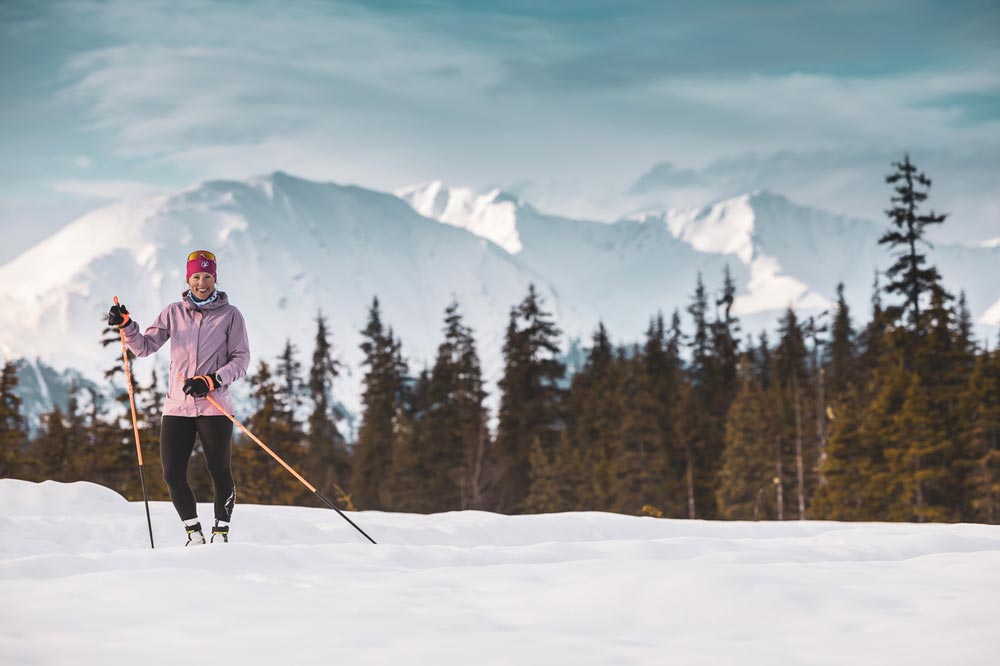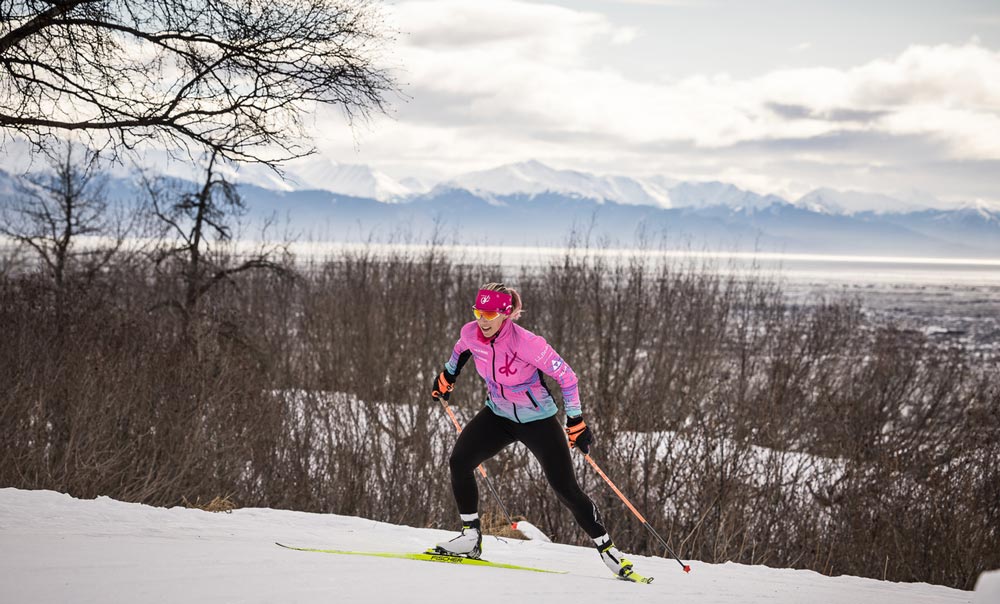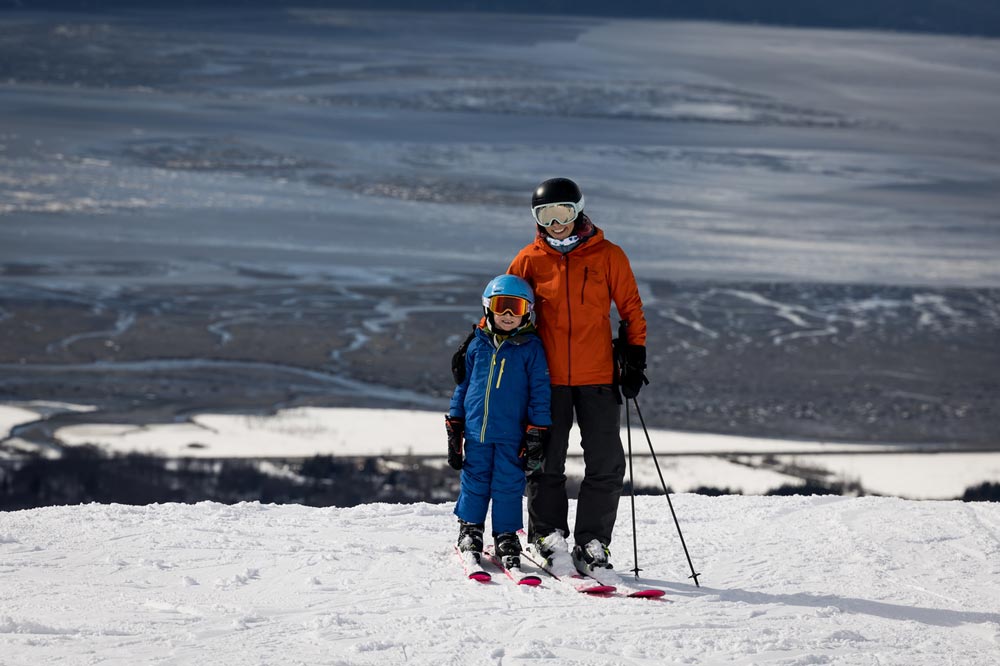
The last time the world saw Kikkan Randall, she was screaming for joy with Jessie Diggins after their remarkable team sprint Olympic win at PyeongChang in 2018. From that career-defining moment, Randall’s life took a serious turn, and over the past six years, she has gone from the highest of highs to the lowest of lows.
This winter, Kikkan, a 46-minute film that documents her journeys—the road to Olympic gold, becoming a mother, a battle with breast cancer and the abrupt end of her marriage—debuts, with a U.S. premiere February 3 at the Center for the Arts Crested Butte in Colorado.
“My goal for the documentary was to share a little bit more about what made my ski career special and how there were so many similarities with going through cancer treatment,” says Randall, who now lives back in her hometown, Anchorage, Alaska.
During the pandemic, Randall and filmmaker Matt Clark, her then-neighbor in Penticton, British Columbia, brainstormed projects to work on and came up with a four-part short video series, #LiveToSki. (Fischer signed on as the sponsor.) The first three-minute video chronicled Randall’s ski career, from her first foray on skis at age one to her Olympic win to how she still “lives to ski.” The other episodes highlighted the joy of skiing with friends and family, and being outdoors.
“Making that [series], Matt was like, ‘You know, there’s so much more of your story to tell, I’d like to do a documentary,’” says Randall. “And that’s where it all got started.”

Although short on racing footage, Kikkan gets to the heart of who Randall is through interviews with her parents, sister, coaches, doctors and U.S. teammates, including Diggins. In the film, Randall confesses that, at first, she didn’t like cross country skiing, aspiring instead to win an Olympic medal as an alpine racer. Then in high school, she learned the importance of teammates, who inspired her to work hard while making skiing fun. The recognition that a strong support network is key has carried through Randall’s life ever since.
As Clark filmed Kikkan, Randall was remarkably hands off. “I really didn’t want to give too much direction,” she says. “I wanted to see what themes would come up as he explored my story and talked to people who were important in my life.”
One of those themes is how growing up in Alaska helped shape the future Olympic gold medalist. The state’s isolation and dramatic weather help Alaskan communities bond, and it’s “a huge outdoor playground,” Randall says in the film. The documentary opens with scenes of her skiing through a jaw-dropping landscape. It closes with her and son Breck standing atop an alpine ski area with a dramatic view of the water. “The footage is just amazing,” Randall comments. “It made me go, ‘Holy cow, I did grow up in a great place.’”

She wants viewers to be motivated by the documentary. “I hope that hearing my story and seeing examples of both triumphs and struggles is inspiring for young athletes, seeing that the path wasn’t totally straightforward,” Randall says. “It took a lot of patience, but look at all the cool things that came of it—not just the results, but the places I went and the people I met.”
Randall also wanted to share her cancer journey in the film. She used the same strategy to battle cancer and get through a divorce that she used to win an Olympic gold medal—an optimistic attitude and a solid support team.
“You just keep looking forward, keep staying positive,” she says. “I hope people find that example inspiring, that they also can achieve great things and get through tough challenges. Everybody has that within them because how you choose to approach these things is accessible to everybody.”
Watch Kikkan (sponsored by L.L. Bean, Fischer and Providence Health):
February 3, Center for the Arts Crested Butte, Crested Butte, Colorado
February 17, Capri Theater, Minneapolis, Minnesota
February 24, Hayward, Wisconsin
February 29, Bear Tooth Theaterpub, Anchorage, Alaska
March 8, Open Space Event Studios, Bend, Oregon
Tickets are $25.
Kikkan will also be viewable online starting March 8.